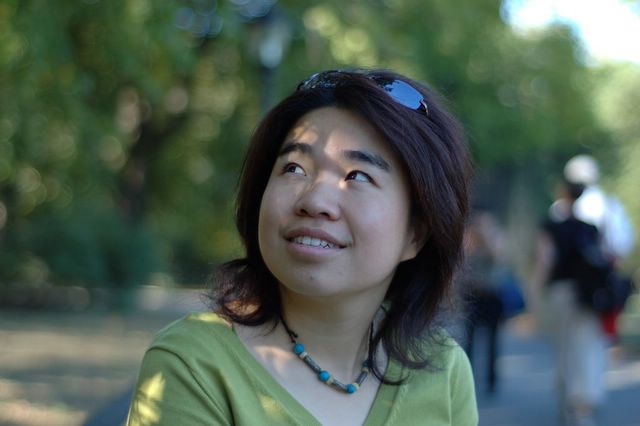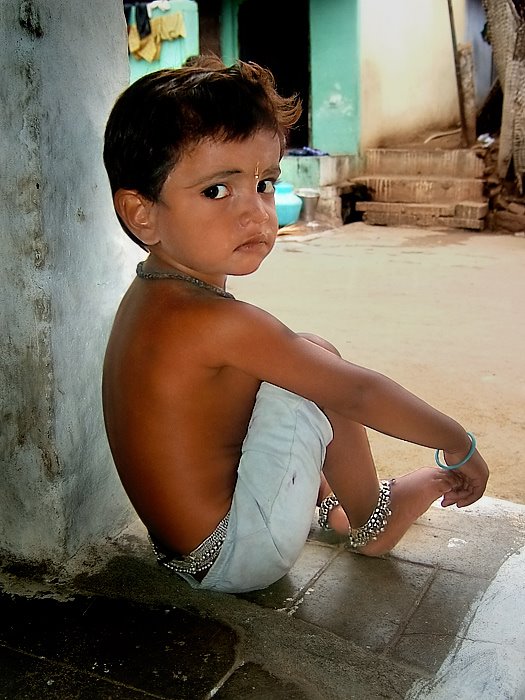
Each individual’s adolescent years involve endless struggle and unexpected pleasure of being. I sometimes recall the carefree times and regret that I did not take any adventurous action as teenagers. While films often bring back some ever-lasting favor of being youth, being innocent and being stupid. Recently I watch three movies which make a perfect triangle of faith, love and compassion. Bernardo Bertolucci’s master piece Stealing Beauty ( a 1996 Italian/French/British film), Adam Brooks’s 2001 drama The Invisible Circus, and Pawel Pawlikowski’s 2004 work of My Summer With Love. Although they were set in different time and countries, these movies share some significant characteristics. They are not simple come-out-of-age stories, but offer different perspectives to observe the basic human nature.
Stealing Beauty is a young girl’s journal to lush Tuscan countryside, intending to find out the truth of her mother and her death. The film describes the seemingly peaceful lives of a community of foreign artists, who are in fact entwined in their love affairs. Lucy is unearthly beautiful and becomes the desire of many. After unsuccessful attempt to find her own father, instead, she finds her first love in an ordinary Italian boy. In this movie, all the sexual tension and desire are converted to a divine love for this young beauty. From her, the power of being alive and being human transforms the dying community and each one re-recognize their love for their partner.
The Invisible Circus was about an 18 years old American girl set foot to the ancient European land to find out the truth of her sister’s death in 1970s. Phoebe’s sister traveled from 1968
 My Summer with Love is "a British film written and directed by Pawel Pawlikowski. Based on a novel by Helen Cross, My Summer of Love explores the relationship between two young women from different classes and backgrounds. Working-class Mona (Press), whose once-hotheaded brother (Considine) became a born-again Christian in prison, meets upper-middle-class Tamsin (Blunt) who suffers from a lack of love in her family. Filmed in West-Yorkshire largely in the beautiful country surroundings of a small town, the film displays a sun-dappled innocence illuminating Mona's relationship with Tamsin." The film is kind of difficult to understand because of the accent of the actress, but it has a phenomenal power to capture audience’s heart. The core of the film is the interaction of two hopeless yet young hearts, who try to find meaningful relationship in their lives. No matter how hard they try, their difference in class, education and family background manifested in multiple ways and led to their separation. That said, I like the end of the film, where Mona gave up an attempt to drown Tamsin and walked away with reborn strength. It is the first time, she walked with a purpose in the road. She grew up out of the pain and her new-gained strength came exactly from her suffer in love.
My Summer with Love is "a British film written and directed by Pawel Pawlikowski. Based on a novel by Helen Cross, My Summer of Love explores the relationship between two young women from different classes and backgrounds. Working-class Mona (Press), whose once-hotheaded brother (Considine) became a born-again Christian in prison, meets upper-middle-class Tamsin (Blunt) who suffers from a lack of love in her family. Filmed in West-Yorkshire largely in the beautiful country surroundings of a small town, the film displays a sun-dappled innocence illuminating Mona's relationship with Tamsin." The film is kind of difficult to understand because of the accent of the actress, but it has a phenomenal power to capture audience’s heart. The core of the film is the interaction of two hopeless yet young hearts, who try to find meaningful relationship in their lives. No matter how hard they try, their difference in class, education and family background manifested in multiple ways and led to their separation. That said, I like the end of the film, where Mona gave up an attempt to drown Tamsin and walked away with reborn strength. It is the first time, she walked with a purpose in the road. She grew up out of the pain and her new-gained strength came exactly from her suffer in love.
According to wikipedia, “My Summer of Love is often mistaken as being nothing more than a 'coming of age' movie, or as a film purely focussed on homosexual relationships. There are further themes on display: the character of Tamsin, in particular, presents a façade, and shows how someone's experimental pretense can lead to catastrophic results. Moreover it is a film about the obsessive love between two teenage girls: the naive, honest and full of passion Mona and the dishonest and abusive Tamsin. Both girls have their share of problems: Mona feels increasingly cut off from her newly religious brother, and she feels lonely and bored by her dull teenage life with no hope of a better future, while Tamsin is well educated with rich parents and with a beautiful house to spend her summer in. Tamsin's sense of abandonment from her absent parents has been masked by these rich trappings: her father is cheating on her mother with his secretary and her mother is often away. Just like Mona, Tamsin wants to escape from her constrained life, and together the two girls can flee their realities and experience a dream. Mona enjoys the music, literature and philosophy Tamsin introduces her to, and Mona allows Tamsin to revel in the performance of being someone completely different from her regular life. Tamsin can do things she never could do without Mona, but while Mona naively believes the summer could last forever, Tamsin knows the end will come, and she plays a deadly game with Mona's feelings”.


没有评论:
发表评论